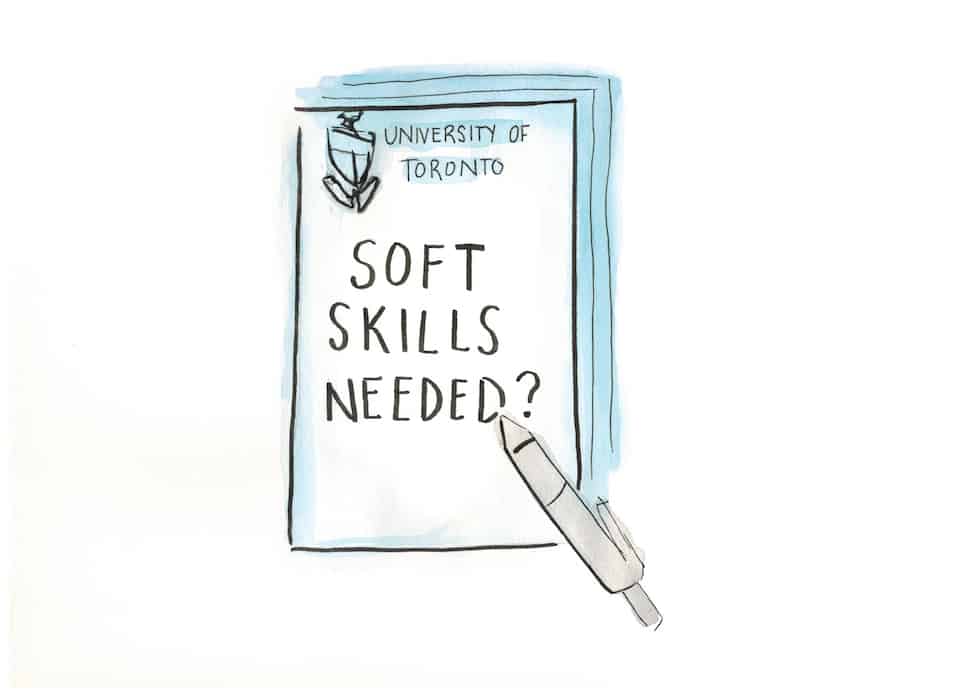[dropcap]E[/dropcap]ARLY in February, the Higher Education Quality Council of Ontario (HEQCO) proposed instituting basic testing at the start and end of students’ post-secondary studies. The online test would be 90 minutes long and examine literacy, numeracy, and problem-solving skills.
This fall, HEQCO will be rolling out a pilot project to test incoming students and is currently seeking colleges and universities to participate in the process. U of T has declined to participate, although director of news & media relations, Althea Blackburn-Evans has said that U of T “looks forward to reviewing the evidence from the pilot projects at other universities.”
While there is certainly value in this proposal, it is important to be realistic about the prospects and critical of how this approach could subvert a student’s curiosity and engagement with wholesome learning. I see several issues that limit this project’s potential effectiveness.
The test doesn’t seem to correspond to or adequately address the concerns of employers, which HEQCO says it is seeking to do. Employers have repeatedly stated that they value ‘soft skills’ in graduates, but they feel university graduates often lack these skills. For instance, a 2015 study showed a mere 34 per cent of employers believed university graduates are properly equipped for the workforce.
This HEQCO test seems to neglect the ‘soft skills’ — such as teamwork, communication, and confidence — of which employers are primarily concerned. A 90-minute online test is not going to say anything about your ability to work cooperatively in a team to address complex issues, while managing multiple deadlines.
Of particular concern is how these test results could come to be used to help determine institutional funding. Although Queen’s Park hasn’t stated that the test results would play into institutional funding, the government’s plan to begin using ‘learning outcomes’ when determining funding suggests that the HEQCO test would be involved in the process.
I have enjoyed my time at U of T and had what I think to be a fruitful educational experience. I didn’t come to U of T to improve my literacy and numeracy. I came for an excellent liberal arts education and to fulfill my passion by learning about sociopolitical issues. It seems possible the HEQCO test could help promote a dulling-down of curricula in favor of reviewing the three Rs, all in order to solicit support from Queen’s Park.
There are, however, some merits to the proposal. Like other students growing up in the United States, I was very familiar with standardized testing and had to take the SAT and ACT when applying to university. The proposed HEQCO test seems to roughly parallel these tests and might provide a sense of students’ competence in the three Rs upon university entrance. Simultaneously, the proposed HEQCO test influences admissions (since they are to be administered after entrance into university) and would not be as susceptible to the stress frequently accompanied with writing the SAT and ACT.
If HEQCO data was used solely to provide targeted programs that help students who might be struggling with competency in literacy, numeracy, and problem-solving, then I would definitely support it. Yet, imposing these standards upon a broad range of students is likely to be counterproductive. Furthermore, we should be cautious not to place too much importance on data from tests in determining curricula and provincial funding.
At the minimum, HEQCO’s proposed test will do nothing to improve the ‘soft skills’ employers want. Career-integrated learning would present a better approach to these skills that U of T should implement. A more holistic approach to education reform will ensure changes are more meaningful and effective.
Sasha Boutilier is a third-year student at St. Michael’s College studying political science and ethics, society, and law.


